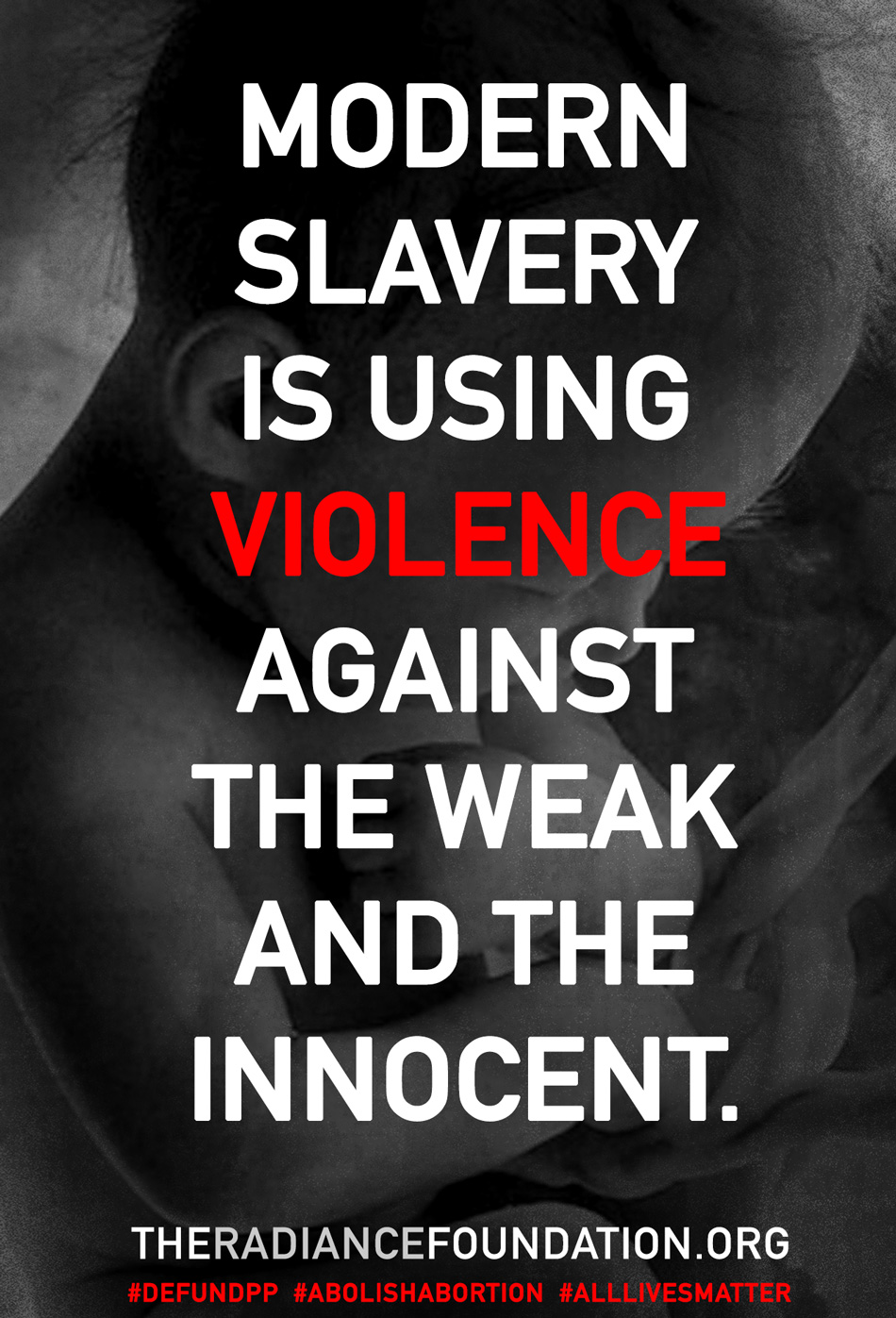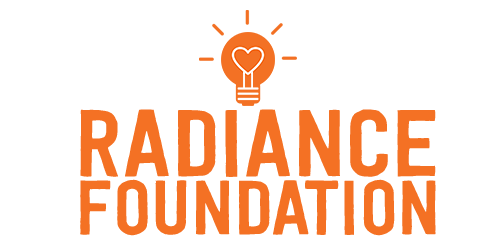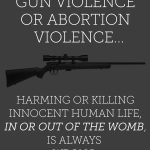The Prolife Movement and Songs of Freedom
The world is moved by music. There is, perhaps, no more compelling construction than a melody to elevate and embolden a cause. Anti-slavery abolitionists understood its power and its ability to sustain them when defeat loomed all around.
Abolitionists were the targets of intense political persecution and verbal and physical violence. William Lloyd Garrison, by the leader of the American Anti-Slavery Society, was brutally attacked for his anti-slavery beliefs, nearly lynched in Boston by a pro-slavery mob. There were many songs of abolition to declare Liberty and to encourage those weary in the fight. These stanzas from an anti-slavery hymn, sung to My Country ‘Tis of Thee, are powerful:
My native country! thee, 
Where all men are born free,
If white their skin:
I love thy hills and dales,
Thy mounts and pleasant vales,
But hate thy negro sales,
As foulest sin.
Let wailing swell the breeze,
And ring from all the trees,
The black man’s wrong;
Let every tongue awake,
Let bond and free partake,
Let rocks their silence break,
The sound prolong.
Our Father’s God!
To thee, Author of Liberty,
To thee we sing;
Soon may our land be bright,
With holy freedom’s right,
Protect us by they might,
Great God, our King.
Prolife advocates are direct descendants of slavery abolitionists. Both the slavery abolitionist and the abortion abolitionist struggle for human dignity and justice. This plight is rooted in the reality that we are created beings with intrinsic worth that can never be defined by man, woman or governmental institution. And like most anti-slavery leaders, the Prolife movement is entirely devoted to peaceful means to change public opinion and end a violent injustice.
Abortion is just as evil an institution as slavery—both industries are inhumane practices of profit-driven human bondage and destruction. According to the Encyclopedia Britannica: “The society’s antislavery activities frequently met with violent public opposition, with mobs invading meetings, attacking speakers, and burning presses.”
Today the supporters of abortion’s institutionalized dehumanization and violence don’t need to burn presses. The mainstream media torches any semblance of objectivity in the abortion debate, deliberately demonizing the pro-life movement with the most incendiary words. But the “prochoice” movement’s attacks are relentless (see this attack on Abby Johnson at the University of Washington), especially in allegedly educational environments, as was seen in my bizarre experience at Georgia State University. The pro-abortion student activists then tried to sue us, having an Atlanta attorney send us a cease and desist letter, because we posted their ludicrous public protest on YouTube. We called their bluff and refused to cease and desist speaking, and posting, the truth. The threat went nowhere.
The NAACP, too, tried to silence The Radiance Foundation for calling them the National Association for the Abortion of Colored People. In an irrefutably accurate news article criticizing their pro-abortion radicalism (and using their own documentation), we exercised our free speech. Like many other pro-abortion activists, the NAACP tried to trample the First Amendment with a frivolous lawsuit but lost their pathetic attempt to censor the truth.
 Pro-abortion activists, like their pro-slavery predecessors, use the same desperate silencing tactics. This “OUTRAGE” poster, from 1837, could be used on any college campus today as activists refuse to allow constitutionally protected free speech. Many are compelled by sheer emotion and ignorance in attempts to quash historical, scientific and statistical facts. So much for “higher learning”.
Pro-abortion activists, like their pro-slavery predecessors, use the same desperate silencing tactics. This “OUTRAGE” poster, from 1837, could be used on any college campus today as activists refuse to allow constitutionally protected free speech. Many are compelled by sheer emotion and ignorance in attempts to quash historical, scientific and statistical facts. So much for “higher learning”.
The attacks against civil rights leaders in the 60s weren’t just verbal, but explicitly violent; yet, the Civil Rights Movement had its righteous cause immortalized in song. We still hear it today. “We Shall Overcome”, a heart’s cry about the deep evil of eugenics-based Jim Crow Laws, was filled with the insuppressible certainty that this injustice would be conquered.
Over the years, prolife songs have trickled out of the music industry, mostly from Christian artists. Many prolife advocates get excited about musicians’ willingness to address this present-day human rights issue. I’ve even written a song, “Meant to Be”, to thank my courageous birthmom for choosing life despite being raped and giving me the gift of adoption. From the famous to the more obscure, prolife messaging can be heard from artists like Lauryn Hill (“Zion”), Common (“Retrospect on Life”), Whitney Houston (“Miracle”), Steven Curtis Chapman (“All I Really Want”), J.Cole (“Lost Ones”), Flipsyde (“Happy Birthday”), Nick Cannon (“Can I Live”) , Christcentric (“Fight for the Children”), Natalie Grant (“Held”), Barlow Girl (“Tears Fall”) and number-one selling hip-hop artist Lecrae (“Good, Bad, Ugly).
Tragically, too often in mainstream hip-hop and R&B, there are continually conflicting messages of morality that tend to negate any positive stance on the Life issue. (Jay-Z’s track, “Blue Ivy”, is considered prolife by some, yet the entirety of his work is anti-life, pro-violence, misogynistic and, at times, inarguably racist. His somewhat famous wife, R&B superstar Beyoncé, has allowed Planned Parenthood to fundraise at her House of Deréon.
“Beautiful Life” is a prolife song released by innovative Christian hip-hop artist Trip Lee. I’m moved every time I hear the song, singing the chorus with a grieved yet expectant heart. These lyrics to the chorus capture the essence of the issue: “Beautiful life inside, living, moving, breathing…So let Hope arise…God knew what He was doing when He gave beautiful, beautiful life…”
Imagine the chorus of millions across the globe, fearlessly declaring a potent refrain that unified this movement of justice. I believe that anthem has yet to be written. But just like the compilation songbook Anti-Slavery Melodies, prolife songs are helping to break through the rhetoric, awaken souls to abortion’s destruction, encourage people to act with nonviolent urgency and even bring healing to those scarred by “choice”.
Prolife advocates are today’s abolitionists compelled by love, justice and mercy. I cannot wait for the day when our song will be one of true retrospect, rejoicing because human worth and dignity have been restored through abortion’s abolition.





